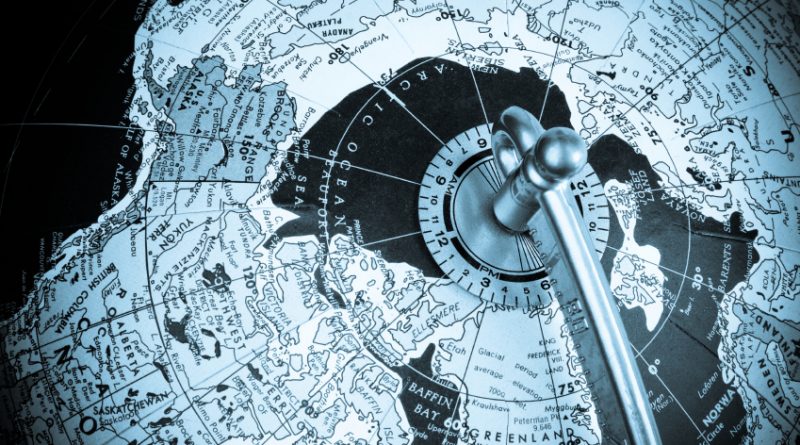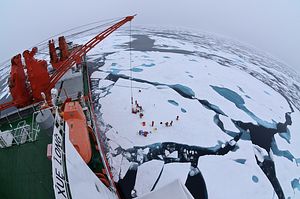The Future of Arctic Shipping Routes
"Inuit are an international people.We did not create the boundaries or borders that we live under."
"We have always travelled through the waters, travelled on the ice, following our food sources."
"[Inuit are aware of risks posed by increasing numbers of ships in Arctic waters, concerned they affect wildlife migration routes] It's our food insecurity or food sovereignty that's impacted."
"[Whatever the outcome, it's vital that Inuit take the lead] We are here, and we are not going anywhere."
Okalik Eegeesiak, former chair, Inuit Circumpolar Council, Iqaluit, Nunavut
/https://www.thestar.com/content/dam/thestar/news/canada/2020/01/18/companies-are-pledging-to-avoid-arctic-shipping-routes-some-residents-say-thats-not-necessary/baffin_bay.jpg)
"[The Arctic] isn't a shortcut, it's a place. Putting the right conservative and protection measures in is essential for us."
"There are other complications [beyond concerns over oil spills] given the remoteness: distance, the weather, the periods of 24-hour darkness, that regardless of how much ice is ever present are just simply never going to change."
Dan Hubbell, Spokesperson, Ocean Conservancy
"[The decline of sea ice has made polar routes more attractive for shipping, but] even if these routes can shorten the time between major trading markets, the increased shipping traffic is a risk to the Arctic ecosystem."
Detlef Trefzger, CEO, Kuehne + Nagel International Ltd. (shipping)
"It's not that [shipping] should be a free-for-all cowboy Wild West, but there are different mechanisms that we should be focusing on."
"Canada should be a leader in the future of sustainable and green shipping that supports self-determination and self-determined and sustainable development."
Jackie Dawson, Canada Research Chair, Environment, Society and Policy, Scientific Director, ArcticNet
"[Southerners tend to see the Arctic as] one big homogeneous place [or a pristine environment where any development is bad, when in fact there are people who live there who understand the trade-offs."
"I think ... people in the south feel like they're entitled to and have a right, even a responsibility, to determine what kind of development can take place in the Arctic, and I think, ethically, probably they don't."
Heather Exner-Pirot, managing editor, Arctic Yearbook

Canada's North is seeing growing traffic on the newly-opened Arctic 'highway', with the increasing melt of sea ice providing opportunities for passage never historically seen. Research ships, government ice-breakers, private yachts too are now travelling north thanks to climate change, with once-impossible access opening up for greater periods of the year. For countries like the U.S. with its Arctic border and China, with its 'observer status' the long view is more convenient shipping; faster and less time-consuming and less costly than having ships pass through the Panama Canal.
The vision for the future is the complete transformation of potential transportation networks, as the North begins to assume a future of accessibility, losing its reputation of extreme remoteness. The total distance travelled by ships in the Arctic, according to one study, tripled between the years 1990 and 2015. The total distance logged in 2015 was slightly over 918,000 kilometres, roughly equivalent to the globe being circled 23 times, and that's impressive.
 |
| Eye on the Arctic |
A small number of global companies reflecting retail giants like Gap and Puma made a pledge that they would not send their goods through the Arctic. Ocean Conservancy based in the U.S. linked with Nike in a launch of the Arctic Corporate Shipping Pledge to convince global companies to commit not to ship their goods through three Arctic routes, one of which is the Northwest Passage skirting the top of Northern Canada, once among the final frontiers of European exploration which a warming climate has made increasingly navigable.
The estimate is that a ship planning to skirt the Americas could one day save hundreds of nautical miles off the journey through the Northwest Passage, rather than the traditional route through the Panama Canal. The Conservancy's shipping emissions campaign manager speaks of the pledge focusing on larger vessels "ships that wouldn't necessarily even be stopping in ports along the way, but they would just be passing through", to have companies consider how their supply chain would affect the environment.
Most Arctic regions are void of the required infrastructure, personnel or equipment to cope with a spill of heavy fuel oil, as an example. Heavy fuel oil represents a marine fuel containing many pollutants. The shipping industry represents economic opportunity for Arctic Inuit communities, points out Ms.Eegeesiak who tend to support development given the opportunity to take part in decision making and to monitor their own waterways.
| Okalik Eegeesiak Inuit commission on the future of the North (Jane Sponagle/CBC) |
Canada Research Chair Dr. Dawson whose ArcticNet studies climate change and modernization in the Canadian Arctic as part of a federal project to use local knowledge and improved mapping and navigational information to promote low-impact shipping corridors in the north, is fully in support of Mr. Eegeesiak's insistence that Arctic Inuit have a right to be involved, help make decisions and reap financial benefits that can accrue.
Inuit from Pond Inlet just off Baffin Bay in Nunavut have pointed out that the clam bed on the ocean floor outside their community is vital to them as a critical food source, so they require that boats not anchor there while the clams are in breeding season. When Greenpeace protested against drilling in the Alaskan offshore a few years back, a wish to protect the Arctic from potentially harmful development went mainstream.
Ms. Eegeesiak cannot look into the future and there is no certainty what the future of shipping in the Arctic will eventually turn out to be. She is adamant, however, that Arctic communities equipped with the resources to service ships and welcome them to their community and to take part in any economic benefits on offer would result in an agreeable conclusion for all concerned. Most of those communities lack docks to load and unload ships as yet, and would require federal assistance.
 |
| Drift ice camp in the Arctic Ocean seen from the deck of icebreaker Xue Long |
Unfortunately, nowhere in this current discussion does the big unknown of China's plans for the Arctic come into play. China has invested in icebreakers and its Arctic fleet is superior to anything Canada has, to patrol and defend its Arctic sovereignty from unwanted intrusion. Russia has invested great sums in renovating its Arctic bases and construction of new Arctic vessels. Canada remains far behind in development of its fleet and its ports; an error of tardiness or disinterest.

Labels: Canada, Canadian Arctic, Navigation, Nunavut, Sea Ice, Shipping
0 Comments:
Post a Comment
<< Home